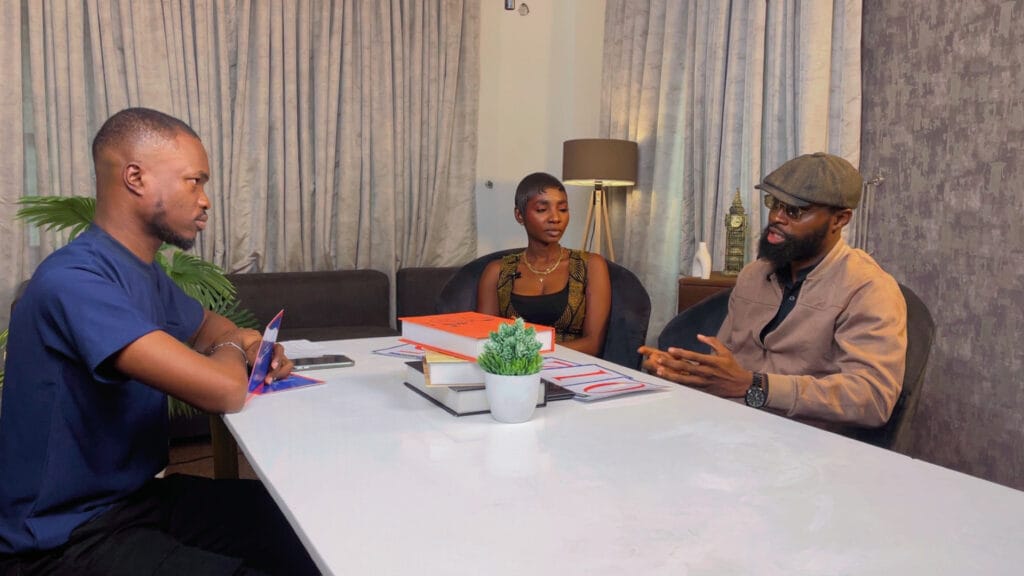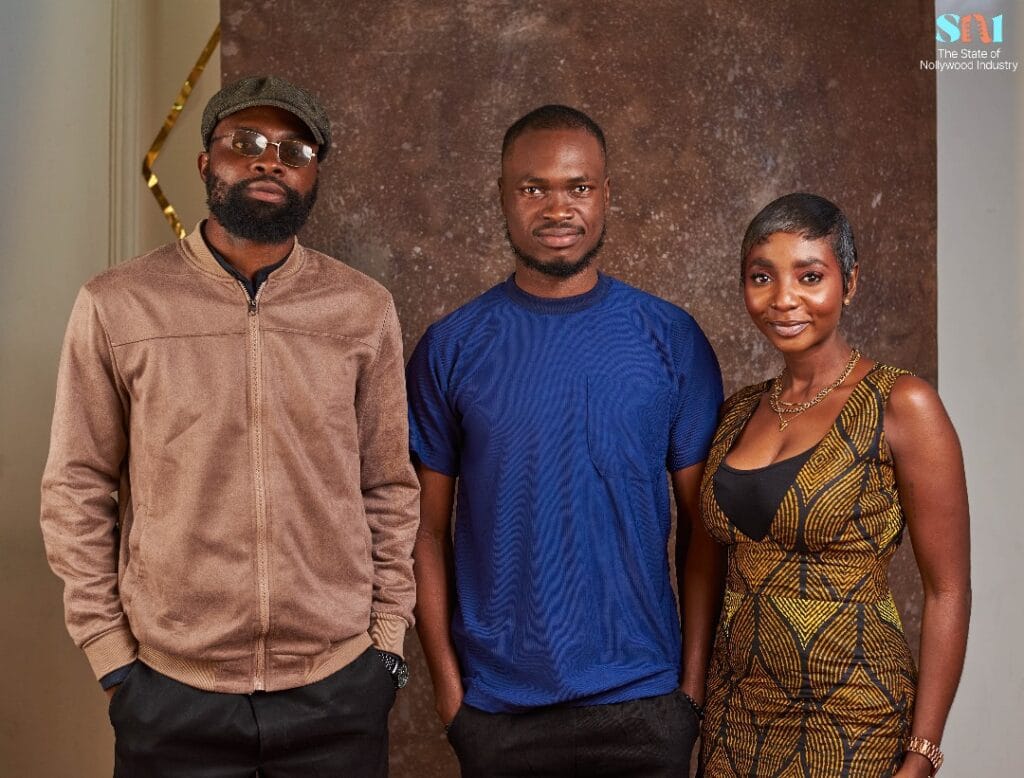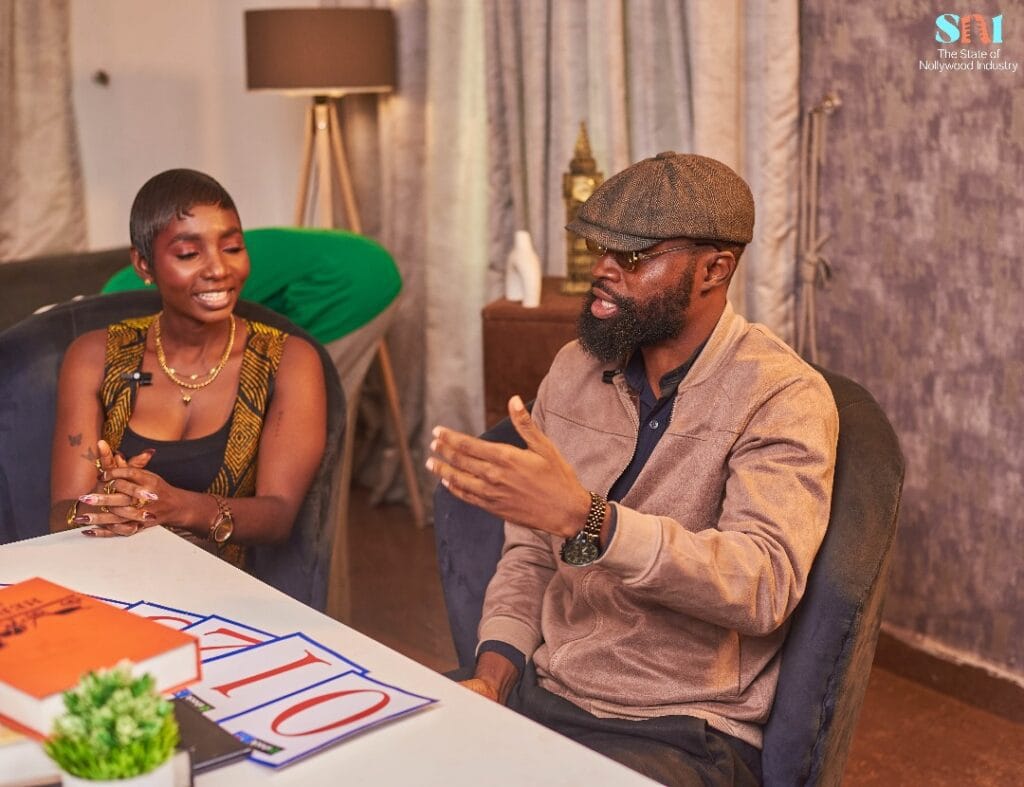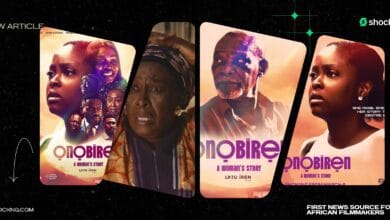The Story⚡
Lights, camera, struggle! Behind Nollywood’s glitz, filmmakers Goodness Emmanuel and Taiwo Egunjobi pull back the curtain on an industry where dreams rarely pay the bills. From vanishing streaming platforms to typecast actors and crumbling infrastructure, Nollywood’s harsh realities are laid bare.

Tell Me More
Nollywood churns out thousands of films yearly, yet most filmmakers can’t survive on production alone. In the latest episode of State of Nollywood Industry Table Talk, hosted by Akintunde Damilare, producer Goodness Emmanuel, and director Taiwo Egunjobi dive into the financial quagmire strangling the industry.

Filmmaking in Nollywood sounds glamorous, but the numbers tell a different story. Goodness reveals that most producers and directors rely on side hustles—real estate, event planning, or even corporate jobs—to stay afloat. “The films don’t pay,” she says bluntly. The funding reality is grim, with the industry scoring a dismal 1/5 for investment opportunities. Private investors are scarce, government support is negligible, and crowdfunding is a pipe dream for most.
The exit of global giants like Netflix and Amazon from Nigeria’s market has left a gaping hole. Once hailed as saviors, these platforms pulled back due to high licensing costs and inconsistent returns, leaving filmmakers scrambling. Goodness notes that Netflix’s reduced presence and Amazon’s complete withdrawal have slashed budgets, forcing producers to cut corners or abandon projects. Distribution, rated 2/5, is a bottleneck, with traditional cinema exhibition and local platforms failing to fill the void.

Casting in Nollywood is a game of economics and geography. Lagos-based actors dominate, often typecast into repetitive roles—think “romantic lead” or “villain”—limiting their versatility and earning potential. Egunjobi explains that regional talent, while abundant, lacks the “star power” to draw crowds, creating a lopsided talent pool (rated 3/5). Breaking into acting is tough, with newcomers facing high barriers and veterans stuck in predictable roles.
Nollywood’s infrastructure is crumbling, scoring a mere 2/5. From outdated equipment to unreliable power, filmmakers face constant hurdles. Egunjobi shares a story of a shoot delayed for days due to a generator failure—par for the course in an industry where basic resources are a luxury. Regulatory support and intellectual property protection (both 2/5) are equally lacking, with piracy eating into already slim profits.

Spoiler alert: it’s not the films themselves that actually make money. Goodness and Egunjobi reveal that Nollywood’s real cash comes from ancillary ventures—product placements, brand sponsorships, and YouTube monetization. Feature films, while culturally significant, often lose money due to high production costs and low returns. The duo’s candid insights paint a picture of an industry teetering on passion but starved of structure.
This episode of State of Nollywood Industry Table Talk doesn’t shy away from hard truths. Emmanuel, a multi-disciplinary creative and talent manager, and Egunjobi, director of Green Fever and Fire and the Moth, bring insider perspectives that resonate with anyone who’s ever dreamed of making it in Nollywood. Their discussion is a wake-up call: talent and hustle alone can’t save an industry plagued by systemic gaps.
Watch Full Episode Now
In Summary
This episode exposes why filmmakers struggle, stars stagnate, and streaming dreams have soured. Tune in to Episode 4 of State of Nollywood Industry Table Talk, where more industry insiders tackle controversial issues shaking Nollywood’s core. Don’t miss it on Shock Africa.

Thanks for Reading.
Shockng.com covers the big creators and players in the African film/TV industry and how they do business.
Let’s be friends on Instagram @Shockafrica



